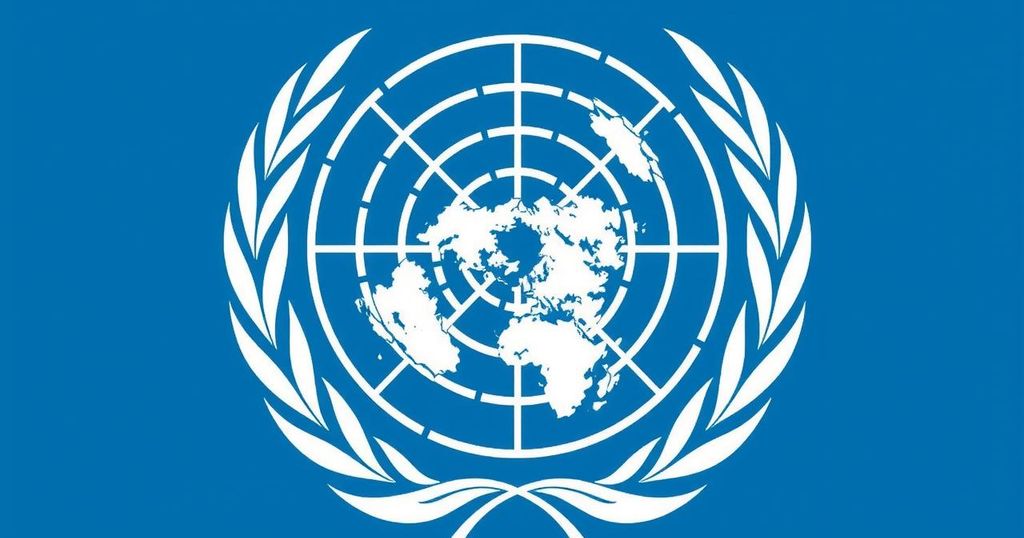Global news
AFRICA, BBC, CIVIL WAR, CONFLICT, DARFUR, DAVID LAMMY, DMITRY POLYANSKIY, EUROPE/ASIA, HUMANITARIAN CRISIS, LAMMY, LINDA THOMAS - GREENFIELD, NEW YORK, NORTH AMERICA, RAPID SUPPORT FORCES, REFUGEE CRISIS, RSF, RUSSIA, SECURITY COUNCIL, SIERRA LEONE, SUDAN, UK, UN, UN SECURITY COUNCIL, UNITED STATES, US, WAR
Leila Ramsay
0 Comments
Russia Vetoes UN Resolution for Sudan Ceasefire, Prompting International Outcry
The UN Security Council witnessed a heated controversy as Russia vetoed a resolution for a ceasefire in Sudan, proposed by the UK and Sierra Leone, amid condemnation from the UK and US. The ongoing civil war has killed tens of thousands and displaced more than 11 million people. Despite widespread support for the draft resolution from other Council members, the veto prevents any immediate cessation of hostilities and exacerbates an already dire humanitarian crisis.
The United Nations Security Council recently faced a significant diplomatic upset as Russia enacted a veto against a resolution proposed by the United Kingdom and Sierra Leone, which called for an immediate ceasefire in Sudan amid the ongoing civil conflict. This resolution, aimed at halting hostilities between Sudan’s army and the Rapid Support Forces (RSF), was met with widespread condemnation from the UK and the United States, who described the veto as a blatant disregard for humanitarian needs. The ongoing war has resulted in tens of thousands of deaths and displaced over 11 million people, escalating what aid organizations are characterizing as a dire humanitarian crisis.
The civil war began in April of the previous year, with the army engaging in a protracted battle for control against the RSF. The draft resolution sought not only to initiate peace talks but also to underscore the importance of earlier agreements pertaining to civilian protection. Although all other 14 members of the Security Council voted in favor of the resolution, Russia’s veto ultimately hindered its passage. UK Foreign Secretary David Lammy expressed outrage, underscoring the severity of the situation in Sudan and questioning how many more lives need to be lost before decisive action is taken.
US ambassador to the UN, Linda Thomas-Greenfield, echoed these sentiments, criticizing Russia for obstructing humanitarian efforts under the pretext of respecting Sudanese sovereignty. Dmitry Polyanskiy, Russia’s representative, defended the veto as a necessary rejection of foreign interference in Sudan’s affairs, controversially claiming that the resolution served to further Western political agendas detrimental to Sudan’s internal dynamics. Sudan’s ambassador to the UN articulated further discontent, noting the absence of critical clauses in the resolution that condemned support for the RSF or categorized it as a terrorist entity, highlighting the complexity of the diplomatic landscape surrounding the Sudan conflict.
Sudan’s civil war, which erupted in April 2022, has escalated into a catastrophic humanitarian crisis characterized by severe violence and widespread displacement. The conflict primarily involves the Sudanese army and the RSF vying for control and has led to allegations of gross human rights violations. More than 11 million people have been displaced, and tens of thousands have lost their lives. The international community, notably entities like the United Nations, has faced criticism for perceived inadequacies in addressing the crisis effectively, culminating in contentious debates within the Security Council regarding intervention and resolutions aimed at restoring peace. The recent veto by Russia further complicates international efforts to alleviate the suffering of the Sudanese populace and highlights the geopolitical tensions influencing humanitarian responses.
In summary, the UN Security Council’s failure to pass a ceasefire resolution for Sudan due to Russia’s veto underscores the complexities and challenges of achieving peace amidst grave humanitarian crises. The tensions between the UK and Russia reflect larger geopolitical disputes, with humanitarian implications often overshadowed. The plight of the Sudanese people remains critical, necessitating urgent and coordinated international action as they continue to endure immense suffering due to the ongoing conflict.
Original Source: www.bbc.co.uk




Post Comment